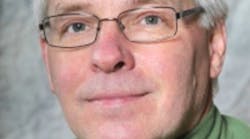Federal workers benefit from attending scientific and technical conferences
Federal workers need to travel to attend scientific and technical meetings, according to Sandra H. Magnus, executive director of the American Institute of Aeronautics and Astronautics. In The Washington Post, she writes that in the wake of a General Services Administration lavish taxpayer-funded training conference, “Congress and the Office of Management and Budget placed well-intentioned restrictions on workers travel…” but thereby “…diminished their ability to engage in collaboration with private-sector peers that is so critical to scientific innovation.”
She notes that even when workers do get approval, it’s often last-minute, preventing them from taking speaking roles and boosting travel costs.
She writes, “In response to the new rules, the American Institute of Aeronautics and Astronautics (AIAA) has joined with more than 100 scientific and engineering organizations to advocate the immediate easing of travel restrictions on federal employees seeking to attend science and technology conferences.” But, she adds, the prognosis is not hopeful, with some lawmakers wanting to impose additional burdens.
The situation is such that the organizers of IEEE Autotestcon, the military/aerospace test conference underway this week near Washington, DC, issued this reminder to potential attendees: “The Hon. Frank Kendall, Under Secretary of Defense, Acquisition Technology & Logistics, issued a guidance memorandum to all DoD departments and agencies on February 20, 2014, urging DoD commands ‘to give appropriate consideration to the importance of attendance at technical symposia and conferences that enhance communication between DoD acquisition professionals and their industry counterparts.’”
The Deputy Secretary of Defense issued a further clarification on September 23 of this year, stating, “DoD participation in conferences and similar events is critical to our ability to share information and break down the barriers that block innovation. Given continued restraints on our resources, the Department must remain a responsible steward of taxpayers’ dollars with regard to conference expenditures. In recent years, however, excessive restrictions on conference participation and attendance by DoD personnel have become counterproductive, undermining the professional development for communities such as our science and technology, medical, and educational personnel, making it more difficult for them to come together with others to promote the free exchange of ideas that drive creativity and innovation.”
Click here for more detail on relevant DoD conference polity updates.
For its part, the AIAA, Magnus reports in the Post, is collaborating with other scientific societies to share stories illustrating the benefits of attending scientific conferences. For example, one AIAA associate fellow and former NASA employee was able to present research on heating onboard the space shuttle and other spacecraft during reentry. And an AIAA forum provided a networking opportunity that contributed to the advancement of robotics.
“There are many more stories like these, and lawmakers need to hear them,” she writes. “The restrictions on conference participation threaten the quality of research at our federal labs, the stature of U.S. science on the global stage, and agencies’ abilities to recruit and retain the best and brightest.”

